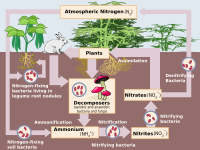Jimbo7
Aquarium Advice Addict
Do you have any sort of evidence to support this, besides the fact that your tank is still running?
And your comparison to the ocean makes absolutely no sense. If you have a huge body of water like the ocean, think how much energy it takes or has to lose in order to change temp, even in a small area. Then compare that to a 5 gallon? Here, my cycling tank was swinging from 74ish to 85-90 in the night/day. Can you honestly say that wouldn't have any effect on your inhabitants?
And your comparison to the ocean makes absolutely no sense. If you have a huge body of water like the ocean, think how much energy it takes or has to lose in order to change temp, even in a small area. Then compare that to a 5 gallon? Here, my cycling tank was swinging from 74ish to 85-90 in the night/day. Can you honestly say that wouldn't have any effect on your inhabitants?

